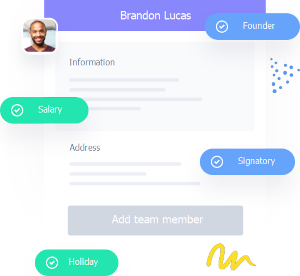How to raise from US investors: Guide for UK startups
Want to attract US VCs? US legal expert Daniel Glazer of Wilson Sonsini explains what US investors look for, when to do...
At SeedLegals, founders regularly ask us about expanding their business into America – if and when to start up in the US, how to register a business in the States, the contracts you need, how to hire people in the US, how to give share options to workers abroad, and more.
To answer all these questions, and to highlight some of the pitfalls for UK businesses when they expand to the US, we ran a webinar with Daniel Glazer of Wilson Sonsini, the international American law firm that specialises in advising high-growth technology companies from corporate formation to IPO/M&A exit and beyond.
In this post, we’ve summarised the essential information for founders considering expanding into and hiring in the United States. You can view the full-length webinar video below.
Anthony Rose, SeedLegals CEO, talks to Daniel Glazer of Wilson Sonsini.
The first half of the video covers how to expand and hire people in the US. The second half is about raising money from US investors, which we’ve set out in our How to raise investment in the USA: guide for UK startups article.
After decades of working with startups, Daniel Glazer and his team observe that UK startups are most successful in their move into the US when they go either early or late. Daniel recommends you get it right in the UK or in the US before you attempt to expand in America:
Planning a reconnaissance trip to the US? Or having a few meetings while taking a holiday in the States? Remember, to be allowed to work in the US, you need a visa proving your right to work there.
But the definition of ‘work’ is somewhat fuzzy. For example, you can have meetings, attend conferences, pitch for investment, do some reconnaissance and so on. But a few days of working on your laptop or hanging out in a café while doing some coding could be considered ‘work’ for which a proper visa is required.
To be certain you stay on the right side of the law, speak to a US immigration specialist. If you’re discovered working illegally in the US, you could delay your plans by being blacklisted, prevented from entering the US for a while.
Daniel GlazerWhen you arrive in the USA, watch out for carefully worded questions at the immigration checkpoint. An officer might ask you, ‘How many days are you planning to work here?’ If you’re simply attending a conference or similar, make sure you say that and clarify that you aren’t planning to work in the US.
London Office Managing Partner,
If you don’t yet feel ready to hire employees in the US but need a few people to get started for you over there, you can just hire them as contractors, right? Not quite.
In the USA, whether someone is an ‘employee’ isn’t determined by whether they have an employment agreement. Similar to how the IR35 rules work in the UK, your ‘contractor’ might in fact be an employee under the relevant state laws, in which case you could be liable for payroll taxes, contributions to the Workers’ Compensation fund and so on.
If you hire someone in the US via a freelance platform like Fiverr or Upwork, then it’s more likely your worker will be seen as a contractor.
But if you hire someone and give them the ability to sign contracts on behalf of your company, or if they have a senior title (for example, Chief Revenue Officer), then no matter what method you used to hire them, there’s a substantial risk that the relevant state authorities would view them as an ‘employee’.
Before we move on to how to employ people in America, Daniel is keen to emphasise this important piece of advice: don’t hire people in the US as employees of your UK company. If you do this, you create three big problems:
Before you employ anyone in the USA, it’s sensible to clarify exactly what you need and then seek advice from a specialist US lawyer.
Save yourself the headache of whether your people in the US are contractors or employees by consulting a US employment lawyer. Prepare job descriptions and the specialist will be able to tell you whether the role, in that particular state, is a contractor or an employee.
If the lawyer says the role you want to hire is an ‘employee’ then you have two choices:
You generally don’t need a US company to:
However, when you need to hire employees in the US, you’re ready to set up a US company.
Wilson Sonsini recommends UK limited companies set up a Delaware corporation as a wholly-owned subsidiary of your UK business. It takes a day or two to sort this out – and bear in mind it’s more expensive to incorporate in the US than it is in the UK.
Why set up a subsidiary and not a US parent company for your business? You can do almost everything you could want to do in the US with a subsidiary, which is less expensive and time-consuming than creating a new US parent company of your UK company. When UK companies set up a US parent company, it’s nearly always a decision driven by US investors.
When you incorporate in the US, your US subsidiary will be incorporated as an ‘Inc’ company. The most common alternative is a ‘limited liability company’ (LLC).
For tax reasons, it’s typically more straightforward to incorporate as an Inc and not an LLC. This is because an Inc is taxed for its own activities. An LLC, by default, is a tax pass-through organisation so the parent company – that would be your UK company – is responsible for the taxes of the LLC. Under UK tax law, there’s usually little benefit for a UK company to have a US LLC instead of an Inc.
You’ve got your US subsidiary, incorporated in Delaware. Now you’re ready to hire your first employee, let’s say in New York. To do this, you need to register your company with the Secretary of State for New York. And for your New York employee, you’ll need two documents specific to New York state:
Every time you hire an employee in a different state, you’ll need to do the same: register with the Secretary of State there, and use state-specific employment documents.
Or should that be Americanize your legals? 😁
As well as your corporation and employment agreements, there will be more legal issues to sort out for your American operations, such as:
Besides legal, there are four other areas UK companies expanding into the US need to consider – to get these sorted out, factor in around three to four weeks:
For most companies, people are the most significant cost of setting up in the USA. It’s common for salaries in America to be 1.5 to 3 times the equivalent UK salaries. And the benefits and payroll bill per person can reach $15,000 to $20,000. This is much higher than the UK because US employees usually expect you to cover their healthcare insurance.
To grant share options to employees in the US, you’ll need to set up an unapproved option scheme (it’s easy on SeedLegals).
Don’t grant options out of your US subsidiary. Your US corporation has no assets (and therefore little value) and it could become very complicated down the line because your US employees would become co-owners of your US subsidiary.
For the options you give your US employees, you’ll need to get a US 409A valuation for your company from an independent specialist. Unlike the HMRC valuation you get for an EMI scheme, the 409A valuation normally isn’t discounted from the fair market value, so the strike price for your US employees will usually be higher than for your UK employees with EMI options.
Read more in our guide, How to give share options to your overseas employees
Wilson Sonsini Goodrich & Rosati started working with tech companies in the early 1960s, often taking companies from ‘garage stage’ startup to IPO and beyond. Famously, the firm incorporated Google in 1998, took them public in 2004 and still works with Google now.
Wilson Sonsini’s London office is led by American expat Daniel Glazer, with a team of 35+ US, UK and dual US/UK-qualified tech lawyers. Every year, the team incorporates US subsidiaries for several dozen UK companies and works with hundreds of UK and European companies throughout their US lifecycle.
If you have questions about expanding your company into America and hiring in the US, take a look at Daniel’s comprehensive FAQs on US expansion, fundraising and exit
Get our weekly email roundup of events for founders. Register for online masterclasses and webinars, get your questions answered in Q&A sessions, pitch and network at our in-person meet-ups, and come meet us at conferences and shows.
Be first to hear about our events – sign up for the newsletter
Main image adapted from an image by gstudioimagen1 on Freepik
Build customised legal documents in less than 5 minutes. Save thousands on legal fees. Try us for free for 7 days.
How it works







